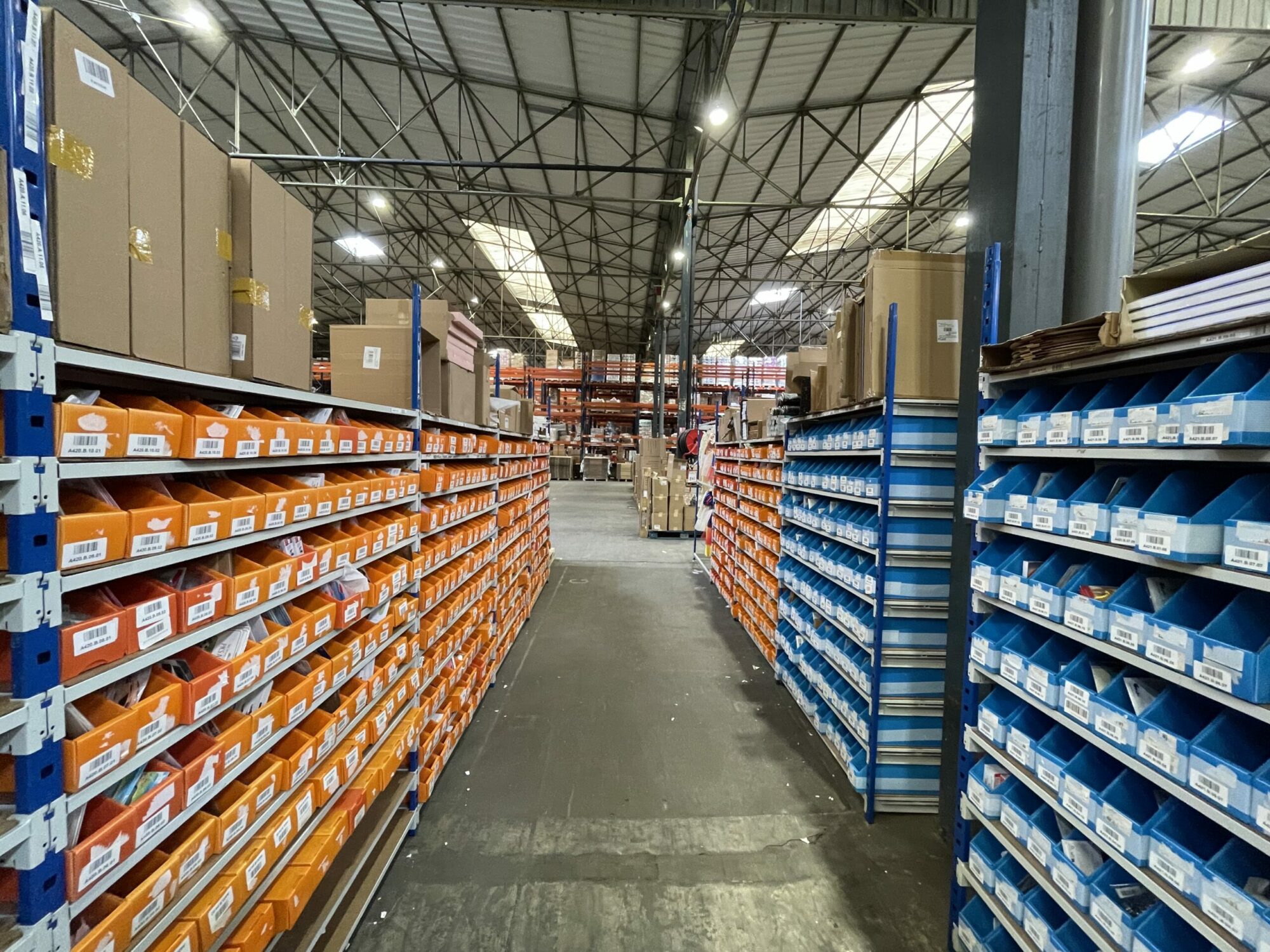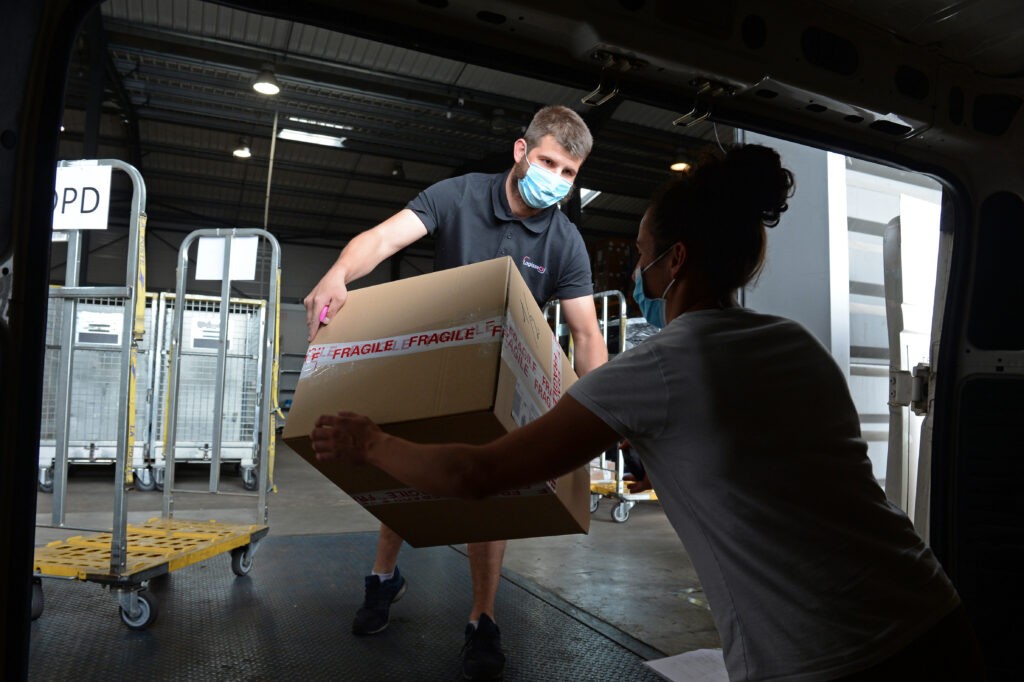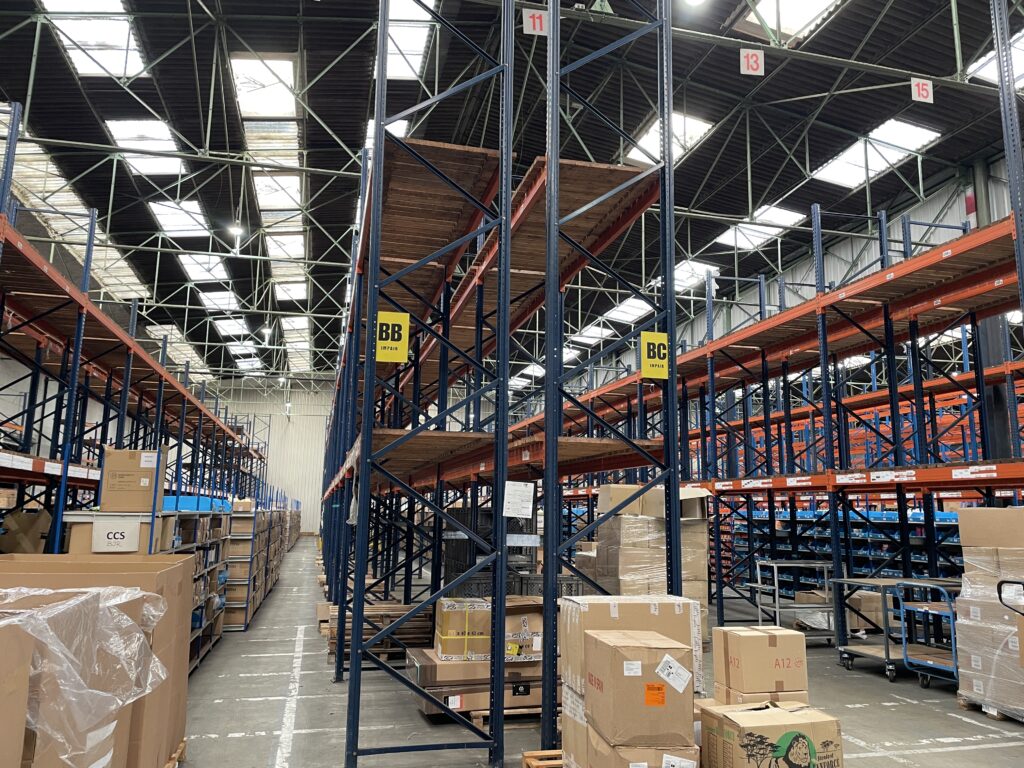Job zoom: Reception Operator
"I like the fact that my days are rarely the same".
Hugo, reception operator at Logisseo

The Receiving Operator's job is to ensure that all handling operations in the receiving department run smoothly. This means that he is in charge of unloading and checking products in transit at the company. He checks each item for quality and quantity. They are also responsible for putting products into stock.
Receiving operator missions
The first task of the receiving operator is to unload the goods. In this context, he is the first point of contact for the drivers, whom he greets on a daily basis and who hand over the parcels to him. As such, he is responsible for ensuring that all the characteristics of the items or pallets comply with what was initially planned. He also checks the condition in which they arrive, so as to identify any problems, and then prints a slip summarizing the nature of the order, which he has the carrier sign.
His second task is to check the quantities received and place them in stock. To do this, the operator scans each item with his TP. This enables him to see the expected quantity and enter the quantity actually received. All this information is sent directly to our customer via our online portal.

Once the quantity has been declared, the computer system indicates where to store the item, taking care to respect the FIFO (first in, first out) principle:
- Picking, directly available to order pickers, if no stock is available in the warehouse.
- In reserve if there is already stock in the warehouse. In this case, items are usually grouped together on a pallet and stored in our pallet racking system.
The receiving operator also plays a role in the upkeep of the premises and equipment, helping to organize them and ensure their cleanliness.) He/she may also be called upon to reinforce the preparation and stock management teams if necessary.
The skills required to be a good receiving operator
To be a good reception operator, it's essential to have a wide range of skills. In this way, all tasks can be carried out with serenity and completed on time. Here are just a few of the skills required:
- Use of business software and a practical exercise
- Organization
- Team spirit
- Precision
- Compliance with procedures
- Compliance with safety rules and instructions
What training and qualifications are required to become a reception operator?

To be a receiving operator, it can be advantageous to have had some training in the logistics sector: this will be a major asset in understanding the different missions entrusted to you and the issues involved, as well as ensuring that they are carried out in optimum conditions.
There is no specific training for the job of reception operator, but it is possible to take a vocational baccalaureate in logistics, a CAP in logistics, or a CAP in service.
The CSR aspect of the receiving operator's job
Yes, the reception operator does have a role to play in the application of the company's CSR approach!
With this in mind, at Logisseo, one of his tasks is to encourage re-use by putting aside the clean wedges received and making them available to preparation operators. By making it possible to reuse what can be reused, he contributes to reducing the amount of waste generated by his department.
The receiving operator also has a role to play in the proper recycling of waste: he must scrupulously respect the sorting of different materials.
Finally, to limit the physical risks associated with the job, he is encouraged to adopt the gestures and postures promoted by the company.
The example of Hugo, reception operator at Logisseo
Hugo has been with Logisseo since 2022. Prior to his arrival, he worked as an order picker for another company. To get where he is today, Hugo trained as a warehouse logistics technician, which helps him on a daily basis!
At Logisseo, he wears two hats: Hugo divides his week between the reception team and the stock management team. For the past few months, he has also been working as a substitute on the management of shipments.

For Hugo, it's necessary to be rigorous, organized, fast and reactive to fulfill all the missions of a reception operator.
Like many of Logisseo's employees, what he likes best about his days is that they don't resemble each other: he enjoys the diversity of his assignments!
Now you know everything there is to know about the receiving operator profession! To find out more about the day-to-day life of a logistics company, follow us on LinkedIn or Instagram.